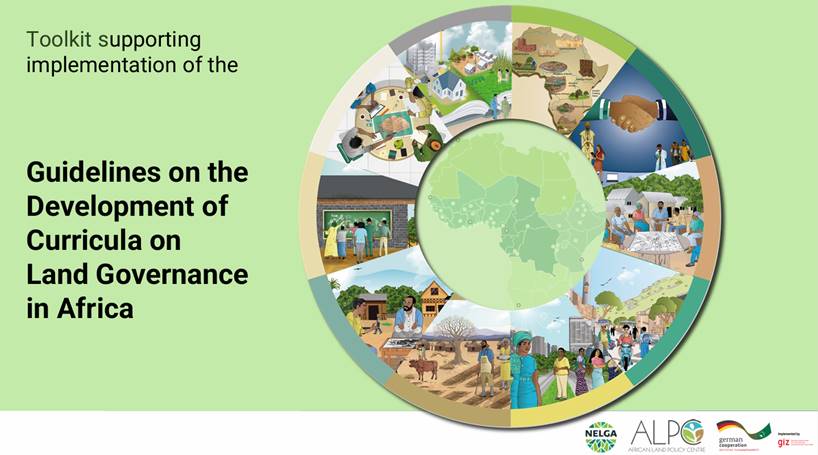Functions of a toolkit supporting the implementation of the guidelines on the development of curricula on Land governance in Africa
The colloquium on 24 April 2025 brought together over 20 participants from within and outside the regional research projects and INTERFACES. The Colloquium was presented by Dr. Désiré Tchigankong Noubissie from the GIZ-Africa Union office’s “Strengthening Advisory Capacities for Land Governance in Africa” project (SLGA). In his presentation, entitled “Functions of a toolkit supporting the implementation of the guidelines on the development of curricula on Land governance in Africa”, Dr. Désiré started by providing background information on the development history and intended users of the toolkit. While universities wanting to implement Land Governance curricula are the key audience, the toolkit is also useful for policy and research stakeholders. He then went on to illustrate how the toolkit provides supporting information to the guidelines which are structured within nine important sections, including: Evolution of Land Governance in Africa, Industry and Programs, Land Governance in Rural Areas,Urban and Peri-Urban Areas, Women’s Land Rights, Environment and Climate Change, Conflicts and Land Governance, Land tenure and property rights, Research and Innovation. This is complemented by a tenth section on Operationalizing the Guidelines which also provides case studies from various African countries.
The rich discussion provided the opportunity to go deeper into some of the issues. Participants were particularly interested to learn more about conflicts and potential alignment of traditional and modern land rights. Dr. Désiré provided some examples from Botswana, Zambia and Zimbabwe where a consultative process led to success in implementing new legal structures. Further questions were on the practicability and implementability of the guidelines, which, as we learned through the speaker’s response, have already been successfully implemented in over 20 universities from within the Network of Excellence on Land Governance in Africa (NELGA). Time was too short to cover every aspect of the toolkit. The link to the presentation is: https://nelga.uneca.org/wp-content/uploads/2024/09/Tool-Kit-Iteration-9-3-2024_WK.pdf.
Further information about NELGA can be found here: https://nelga.uneca.org/. Requests for curriculum development support should be raised with the African Land Policy Centre (ALPC): https://www.uneca.org/african-land-policy-centre.
